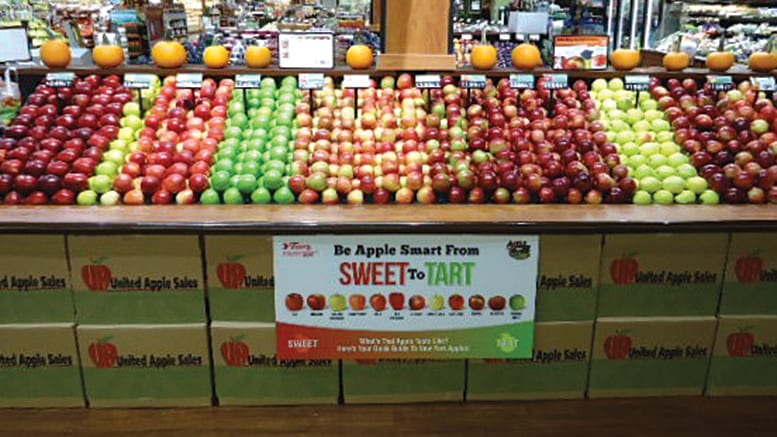Don’t Give Up On Fall Sales
October 1, 2018 | 3 min to read
As fall approaches, retail managers often overlook the potential of seasonal produce, focusing instead on traditional holiday foods. This neglect ignores the substantial sales opportunities presented by unique items like the wide variety of apples, along with other fall offerings such as berries and hard squashes. By promoting these items and educating consumers, retailers can enhance their store's appeal, drive sales, and create a cohesive shopping experience that highlights the importance of produce throughout the fall season.

Originally printed in the October 2018 issue of Produce Business.
 As we move into the fall season, the emphasis at retail turns toward promotional activity in support of the upcoming holiday season. Managers shift their focus from the abundance of varieties available in fresh produce to other perishable departments, such as meat and bakery. They abandon their focus and emphasis on seasonal produce items and concentrate on more traditional holiday foods. As produce representatives plead for exposure and promotion of fall produce varieties, managers often ignore the requests. This action proves management “just doesn’t get it!”
As we move into the fall season, the emphasis at retail turns toward promotional activity in support of the upcoming holiday season. Managers shift their focus from the abundance of varieties available in fresh produce to other perishable departments, such as meat and bakery. They abandon their focus and emphasis on seasonal produce items and concentrate on more traditional holiday foods. As produce representatives plead for exposure and promotion of fall produce varieties, managers often ignore the requests. This action proves management “just doesn’t get it!”
The natural tendency at retail is to exploit the upcoming holiday season as soon as possible to maximize potential sales. What gets overlooked is that all departments, especially produce, have substantial benefits available for sales during the fall season. The produce department is a perfect place for transitional activity from the items abundant during the summer to the items that herald the coming of fall. In particular, the wide variety of apples provides tremendous opportunity to pique consumers’ interest. In addition to the nearly year-round stable apple varieties, there is a large number of seasonal apples that offer unique flavors consumers can enjoy for a limited time.
The innovative retailer capitalizes on these seasonal items. Many encourage growers to participate in in-store promotions that educate consumers on benefits and tastes of seasonal apples. This strategy is extremely successful in farmers’ markets, where consumers can discover the unusual varieties and their different flavors. Produce departments can show that there is always something new to uncover in every season.
The produce department is a perfect place for transitional activity from the items abundant during the summer to the items that herald the coming of fall. In particular, the wide variety of apples provides tremendous opportunity to pique consumers’ interest.
In addition to promoting unique items in the apple category, the produce operation can feature other fall items to generate more sales. Imported berries, hard squashes, pears and in-shell nuts are the major commodities that become available, along with new crops of stable items such as potatoes, onions and sweet potatoes. All of these fall items combine to offer exceptional opportunities to maintain sales momentum. It’s an opportunity not to be missed, as long as management reverses its attitude on the fall season.
That change in philosophy can help balance a store’s total offerings. Continuing to promote holiday items in other departments while showcasing the ever-changing landscape of the produce department helps complete customers’ needs during the fall. It also provides a springboard during those holidays in the last three months of the year. These gatherings are crucial to the success of the store as these celebrations are usually built around major food events and family gatherings. The successful retailer utilizes a consistent theme throughout the store — especially in produce — to create excitement and opportunity for sales. It might not be the typical strategy employed by management, but it will entice customers to shop the entire store and discover all that the retailers have to offer.
A balance of offerings is what the innovative retailer utilizes to enhance the perception that this is the place for consumers to shop for all their needs no matter what season it is. There is no doubt that produce plays a vital and prominent role in producing the desired presentation and results. No matter what the season, produce always provides opportunities to drive sales and profits. By not relegating produce to a secondary role during the fall season, retailers can enjoy a successful fall and holiday season.
Don Harris is a 41-year veteran of the produce industry, with most of that time spent in retail. He worked in every aspect of the industry, from “field-to-fork” in both the conventional and organic arenas. Harris is presently consulting. Comments can be directed to editor@producebusiness.com.
26 of 30 article in Produce Business October 2018

